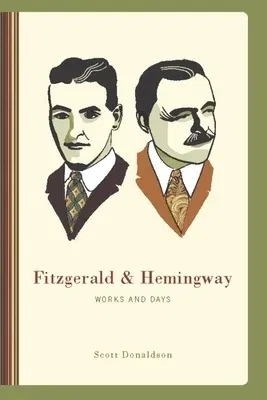F. Scott Fitzgerald and Ernest Hemingway might have been contemporaries,
but our understanding of their work often rests on simple differences.
Hemingway wrestled with war, fraternity, and the violence of nature.
Fitzgerald satirized money and class and the never-ending pursuit of a
material tomorrow. Through the provocative arguments of Scott Donaldson,
however, the affinities between these two authors become brilliantly
clear. The result is a reorientation of how we read twentieth-century
American literature.
Known for his penetrating studies of Fitzgerald and Hemingway, Donaldson
traces the creative genius of these authors and the surprising overlaps
among their works. Fitzgerald and Hemingway both wrote fiction out of
their experiences rather than about them. Therefore Donaldson pursues
both biography and criticism in these essays, with a deep commitment to
close reading. He traces the influence of celebrity culture on the
legacies of both writers, matches an analysis of Hemingway's Spanish
Civil War writings to a treatment of Fitzgerald's left-leaning
tendencies, and contrasts the averted gaze in Hemingway's fiction with
the role of possessions in The Great Gatsby. He devotes several essays
to four novels, Gatsby, Tender Is the Night, The Sun Also Rises,
and A Farewell to Arms, and others to lesser-known short stories.
Based on years of research in the Fitzgerald and Hemingway archives and
brimming with Donaldson's trademark wit and insight, this irresistible
anthology moves the study of American literature in bold new directions.

